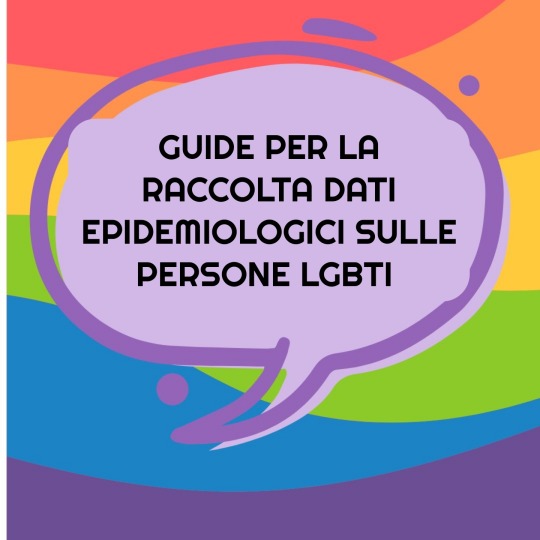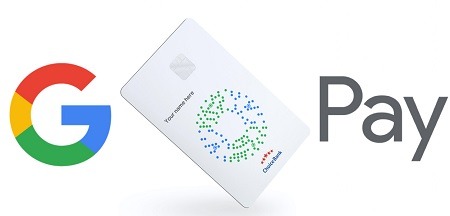#sfcus
Explore tagged Tumblr posts
Text
Mortgage Liverpool, NY

SFCU offers reliable solutions to mortgage Liverpool NY, designed to help individuals and families achieve their dream of homeownership with ease and confidence. Whether you're buying your first home, refinancing, or upgrading to a new property, SFCU provides competitive rates, flexible terms, and personalized guidance every step of the way. Their mortgage options include fixed-rate and adjustable-rate loans to suit a variety of financial needs. With a strong local presence and a commitment to member-focused service, SFCU makes the mortgage process smooth and stress-free for homebuyers in Liverpool, NY.
0 notes
Text

Questa review Canada-Usa, dove la Anagrafica Inclusiva LGBTI esiste dal 2010, fa il punto sulle questioni pratiche che si sono dovute affrontare e che ancora hanno bisogno di essere migliorate:
https://www.jmir.org/2023/1/e46773
I focus sono sui seguenti argomenti:
terminologia, salute digitale e funzioni del fascicolo sanitario elettronico, implicazioni politiche e pratiche, impostazioni di assistenza primaria, impostazioni di assistenza per acuti e terziaria, assicurazione sanitaria, sistemi di fatturazione medica, sistemi legali e culture sanitarie diverse (come quella UE).
In UE abbiamo pubblicato da luglio 2023 questa guida generale ma in Italia ancora nessuno si è fatto carico della Anagrafica Inclusiva LGBTI in Sanità:
https://commission.europa.eu/document/download/66adbc7e-99cb-4d88-a653-d7fbfba9d7e8_en?filename=JUST_Guidance%20note%20on%20the%20collection%20and%20use%20of%20data%20for%20LGBTIQ%20equality%20%E2%80%93%202023.pdf.pdf
I problemi maggiori verificati sono:
1) L'uso della Carta di Identità o del Codice Fiscale impedisce di elaborare la presenza di persone Transgender o Intersessuali e nega loro l'assistenza primaria o la gratuità delle prestazioni di base.
2) Si è proposto il concetto di "sesso per uso clinico" (SFCU) separato dal sesso anagrafico ed è stato usato per garantire l'accesso a cure ormonali e chirurgiche specifiche ma anche oncologiche, urologiche o ginecogiche. Gli intervalli di riferimento di salute anche ematologici possono essere diversi inoltre in persone Transgender o Intersessuali.
3) In Canada come negli USA l'assicurazione sanitaria è privata e c'è un rischio di frodi per l'uso di termini Alias o dopo il riconoscimento del proprio genere legalmente. Questo problema non esiste in Italia.
4) In Italia il problema maggiore è inveve che il cambio di sesso anagrafico rende impossibile alcuni screening oncologici, ad esempio. Anche prima del riconoscimento legale i valori alterati dagli Ormoni non sono riconosciuti dai sistemj elettronici automatizzati su M o F solamente. Esistono poi valori, ad esempio ematologici o al PAP test, che sono unici per le persone Transgender o Intersessuali.
5) In Canada e USA è ovviamente sentita come molto importante la questione intersezionale tra ricchezza-povertà, genere, etnia, orientamento sessuale, religione, espressione di genere, cultura di appartenenza, ecc. In Italia le minoranze sono ancora semplicemente maltrattate o ignorate anche in Sanità.
6) Anche questo articolo sottolinea l'importanza di aggregare i dati delle Minoranze per garantire categorie utili statisticamente. Tuttavia a livello clinico resta l'unicità della persona a garantire la relazione sanitaria e la aderenza a programmi di prevenzione diagnosi e cura.
7) Quindi è necessario un meccanismo di un peso... due misure... per usare in modo aggregato i dati epidemiologici e in modo individualizzato i dati nella relazione sanitaria col singolo utente.
8) Anche durante un'emergenza è stato considerato fondamentale rendere nota l'identità di genere per l'uso del nome e desinenze ma anche per l'assegnazione alle camere o agli esami specifici per il corpo che si ha e non per l'indicazione Anagrafica che sarebbe sempre parziale sia prima sia dopo il riconoscimento del genere
9) Lo stesso discorso vale per il riconoscimento dell'orientamento sessuale, del partner, soprattutto se sposati o uniti civilmente, specialmente in Ginecologia ed in Pediatria (per la cura dei figli di coppie omogenitoriali)
10) In caso di incoscienza del paziente:
A) la raccolta dati in fascicolo sanitario elettronico potrebbe garantire anche che non ci siano gravi confusioni sul corpo da curare
B) si possa evitare di dileggiare chi non può difendersi in caso si identifichi la persona come Intersex o transgender durante l'esame clinico.
11) Le relazioni iniziano all'accoglienza dove l'appellativo Sig. oppure Sig.ra o l'uso del nome anagrafico possono causare gravi imbarazzi ed impedire l'accesso alle cure delle persone Transgender non riconosciute nei documenti per il proprio genere.
Anche successivamente nella comunicazione in messaggi telefonici o per email bisognerà trovare soluzioni migliori per le persone TGNC.
12) La maggior povertà e per alcuni sottogruppi la minore scolarità rendono difficile l'accesso ai sistemi informatici utilizzati oggi sempre più spesso in Sanità.
13) La questione della Visibilità del proprio genere o orientamento sessuale è fondamentale per ottenere l'accesso a screening o cure specifiche ulteriori ma non sempre le persone LGBTI se ne rendono conto e generalmente i medici non sono comunque formati a fornire quei servizi sanitari specifici.
14) Il rischio di misgendering, omofobia sanitaria o espulsione sono forti anche in Italia ma anche l'assenza di specifica formazione in Medicina di Genere LGBTI rende spesso inutile il Coming Out con il personale sanitario.
15) Il problema della visibilità LGBTI si incrocia anche con la paura soprattutto per i minori che determinate informazioni siano date a parenti omofobi. Al contrario servono specifici sostegni sociali e psicoeducativi per garantire una transizione la più serena possibile al Coming Out con tutti.
16) Le informazioni sull'orientamento sessuale e identità di genere vanno aggiornate una volta l'anno soprattutto se si verifica un errore di indicizzazione e in adolescenza.
17) La raccolta di questi dati va fatta con moduli autosomministrati su supporto elettronico e garantendo la riservatezza quando chiesti di persona.
18) I dati da aggregare per gli studi epidemiologici devono rispondere ai seguenti criteri scientifici: (1) universalità; (2) consenso informato; (3) formazione obbligatoria regolare; (4) processi di riservatezza dati sensibili; (5) pertinenza; (6) formazione anche del fornitore dei materiali sanitari e del personale non medico.
19) Vanno considerati anche fattori come la comprensibilità da parte della popolazione generale, perché indici chiari solo alle persone LGBTI possono causare che i dati della popolazione generale finiscano indicizzati come appartenenti alle minoranze. La univocittà del significato dei termini usati, l'impossibilità di tradurre termini inglesi come straight, il fatto che eterosessuale e cisgender siano confusi spesso col loro opposto, l'uso diverso in contesti diversi di parole inglesi, l'esistenza di termini etnici come femminiello e masculone in Italia, rende difficile la standardizzazione.
20) Rimandiamo ai nostri post sul Sex & Gender Orienteering per una nostra proposta a nostro avviso più efficace.
#epidemiologia #statistiche #dati #LGBTI #sanità #amigay
0 notes
Text

My supportive fathers have come together with their now shared ‘friend’ Anthony to announce something very important to me
#another thrilling addition to the sfcu#i love supportive father posting#i have no idea where the narrative is going but by god am i weaving it#frank iero#tucker rule#anthony green#ls dunes
321 notes
·
View notes
Text
Titillating Titus
[email protected] asks: "Did bath salts exist back in the 16th century (or whatever), and was Shakespeare on them when he wrote Titus Andronicus? Because that is one bloody, Patrick Bateman-style mess and I can't believe a sane mind wrote that."

Shakespeare was not, as far as we know, on Elizabethan bath salts. If you really if you want to start throwing around “what-were-they-thinking” darts, this one will have to travel even further back to those ever gentle and peace-loving people, the very ones which Titus features: The Romans. Seneca the younger and Ovid, to be exact. Seneca the younger and his bloody Game of Thrones rip-off stories became hip with the cool kids of Elizabethan England. Next thing you know, revenge plays were all the rage the early 1590s. Thomas Kyd was *killing* it with The Spanish Tragedy, good old Sackville and Norton were running around with a play called Gorboduc. Ovid’s Metamorphoses had a good say in Titus, too. Staging poor Lavinia explaining the horrific things that happened to her using a copy of Metamorphoses wasn’t exactly Shakespeare’s most subtle nod to his favorite work, but even Shakespeare phoned it in on occasion.
Yes, Titus Andronicus was Shakespeare’s first crack at a revenge play, long before he penned that tepid revenge play, Hamlet. Many bookish people suggest that Shakespeare was collaborating with other playwrights at the time, sort of honing his craft and making a name for himself— so long before that name became the cursed threat of every modern day English teacher.
Keep in mind that life in Elizabethan England was only slightly tamer than life in America today. Bear-baitings and public executions were the dinner-and-a-movie date of the 1500s. (Don’t even ask about the Elizabethan version of Netflix and chill.) Like so many others of Shakespeare’s plays, Titus made a tremendous amount of sense to the audience it was written for. Today, however, it just seems like an excessively violent HBO series in a foreign language. I can only guess that one day, our future society will look back at our footprint in time made up of social media and X-Box games and wonder what mind-altering drugs we were collectively taking.
2 notes
·
View notes
Text
the sfcu (stick figure cinematic universe) is ever growing and even you can contribute all by yourself
6 notes
·
View notes
Text
I can’t ever read the ya dystopia that made me start thinking about sewer freaks bc I know it can’t compare to the sfcu (sewer freak cinematic universe) that now exists in my head
10 notes
·
View notes
Text
baby jack storyline but it skips like 3 years later so we see like 3yo jack instead of an annoying baby so we get to see jack and their toddler shenanigans
i am living in the sfcu(skeptical frog cinematic universe)
#baby jack#laniposts#toddler jack#momma dean#i have more ideas but my brain and hands arent coordinating well
7 notes
·
View notes
Text
SFCU offers new line of credit for federal workers - Wed, 16 Jan 2019 PST
Spokane Federal Credit Union is offering a nine-month, interest free loan to federal workers affected by the shutdown, the lender announced this week. SFCU offers new line of credit for federal workers - Wed, 16 Jan 2019 PST
0 notes
Text
In the Skittles Friends Canon Universe (SFCU)
I am dating mothman. So hellooooo there.

457 notes
·
View notes
Photo

Quand un malheureux crie, l’Eternel entend, et il le sauve de toutes ses détresses. Psaumes 34:7 Il guérit ceux qui ont le coeur brisé, Et il panse leurs blessures. Psaumes 147:3 https://www.instagram.com/p/CjFKcl-sFCu/?igshid=NGJjMDIxMWI=
0 notes
Text
Bank Syracuse, NY

SFCU is a trusted bank Syracuse NY, offering a wide range of financial services tailored to meet the needs of individuals and businesses in the area. From checking and savings accounts to personal loans, mortgages, and business banking solutions, SFCU ensures that every client receives personalized, efficient service. With competitive rates, cutting-edge digital banking tools, and a commitment to community support, SFCU provides a convenient and reliable banking experience. For those looking for a financial partner they can trust in Syracuse, SFCU is the go-to choice for secure, flexible banking services.
0 notes
Text

My supportive father and his ‘friend’ Anthony have to talk to me about ‘something important’
#i dont know where my other supportive father is#i keep expanding the supportive father cinematic universe#are yall enjoying the sfcu#tucker rule#anthony green#ls dunes
250 notes
·
View notes
Photo

グーグルがGoogle Payと連携するデジタルバンキング計画を拡大、BMO Harrisなど6行と提携 Google(グーグル)が米国でデジタルバンキングサービスを提供する計画を拡大している。同社は米国時間7月3日、6行と提携し、米国のGoogle Payユーザーに2021年のどこかでデジタル当座預金口座と貯蓄預金口座を提供すると発表した。新しく提携するパートナーはBank Mobile(バンクモバイル)、BBVA USA、BMO Harris(BMOハリス)、Coastal Community Bank(コースタルコミュニティーバンク)、First Independence Bank(ファーストインディペンデンスバンク)、SEFCU(State Employees Federal Credit Union)だ。以前提携が発表されたCiti(シティ)とSFCU(Stanford Federal Credit Union)にこの6社が加わり、現在合計8行がこのプロジェクトに向けて準備中だ。
0 notes
Text
04 de Agosto, 2020
Internacional
Google Pay contará con cuentas bancarias digitales

En asociación con una serie de bancos en los EE. UU, ha dado un paso más para que la llegada de las cuentas bancarias digitales a los usuarios Google Pay pueda ser una realidad a lo largo del próximo año. Para las cuentas bancarias digitales de Google Pay, Google se encargará a través de una experiencia que ofrezca a los usuarios las herramientas habituales para que los usuarios puedan gestionar su propio dinero, mientras que los diferentes bancos asociados se encargarán de todo lo relativo a la gestión financiera de las cuentas digitales de los usuarios. Google también está trabajando para lanzar su propia tarjeta de débito que pueda ser gestionada a través de Google Pay.
E.@. En cualquier caso, Google, como otras firmas tecnológicas como Apple o Samsung, trabajan para ofrecer servicios financieros dirigidos, sobre todo, a una generación de usuarios acostumbrada a gestionar sus finanzas a través del teléfono móvil, y que no encuentran respuestas a sus demandas a través de los servicios bancarios tradicionales.
Como suele pasar en estos casos, todavía toca seguir esperando, y de mientras estar atentos a la rumología y todo lo que pueda venir de manera oficial o extraoficial, hasta que llegue el momento en el que Google pueda ofrecer toda la información posible. En total, son ocho los bancos con presencia en los Estados Unidos los que se han asociado a esta iniciativa, donde además de Citi y Stanford Federal Credit Union, que ya estaban presentes, se han sumado ahora Bank Mobile, BBVA USA, BMO Harris, Coastal Community Bank, First Independence Bank y SEFCU. Para Google, el anuncio de hoy es básicamente una extensión de los negocios de cuentas bancarias originales de Citi y SFCU.
Por el momento se desconoce exactamente como funcionarán las nuevas cuentas bancarias digitales de Google Pay, y cuáles serán los beneficios que ofrecerán a los usuarios.
Fuente
0 notes
Text
Google signs up six more partners for its digital banking platform coming to Google Pay
Google is expanding its plans to offer digital banking services in the U.S. The company announced today it’s partnering with half a dozen more banks to offer digital checking and savings accounts to Google Pay users in the U.S., starting sometime next year. The new partners include Bank Mobile, BBVA USA, BMO Harris, Coastal Community Bank, First Independence Bank, and SEFCU. They join Google’s existing partners, Citi and SFCU, announced earlier, for a total of now eight banks lined up for the project.
News of Google’s big move into banking and personal finance through an effort known internally as “Project Cache,” was first reported by The Wall St. Journal in November. Much like the mobile banking services offered today by a number of startups, Google will provide the consumer-facing front-end to the digital banking services it makes available, while the accounts themselves will be held by the FDIC-backed partner institutions.
However, unlike with mobile banking startups, which tend to note their banking partners only in the fine print, Google is giving the banks a co-branded experience. In addition, Google explains that by working with a range of partners from large, global banks down to smaller credit unions with deep community ties, it will be able to do a better job building products that meet its customers’ diverse set of needs.
“We had confirmed earlier that we are exploring how we can partner with banks and credit unions in the U.S. to offer digital bank accounts through Google Pay, helping their customers benefit from useful insights and budgeting tools, while keeping their money in an FDIC or NCUA-insured account,” a Google spokesperson says. “We are excited that six new banks have signed up to offer digital checking and savings.”
The company says it plans to add to even more U.S. financial institutions over time.
Google today operates its digital payments service Google Pay and complementary Google Wallet product to serve its customers’ financial needs. But today, more consumers — and particularly younger people — are moving away from brick-and-mortar banking institutions to instead manage their money online online. Apple already tapped into consumer demand for digital banking with the launch of its co-branded Apple Card credit card with Goldman Sachs. But it has not yet offered a full banking service, only Apple Cash — a service where you store your “cashback” credits from Apple Card use, payments from friends, or the cash you transfer in from a connected bank.
Google’s plans are more extensive. Though it won’t host the bank accounts, it will be able to draw on data to offer customers financial insights and other budgeting tools. For the partners, the service gives them a way to market their brand to consumers in an increasingly mobile-first, online-only market.
“Being able to support our customers’ financial lives in more places where they’re spending their digital time is important to helping them be successful,” said Brett Pitts, chief digital officer for BMO Financial Group, in a statement about BMO’s partnership with Google. “Collaborating to launch this new BMO digital product accelerates our ability to deliver financial advice to our customers and is an innovative step in the evolution of how we serve them.”
For BBVA, the collaboration is another step forward for its BBVA Open Platform, that allows the bank to acquire customers by embedding its financial products within other apps and services.
“BBVA has focused for decades on how it could use digital to advance the financial industry, and in so doing, create more and better opportunities for customers to manage their financial health,” said BBVA USA President and CEO Javier Rodriguez Soler. “Collaborations with companies like Google represent the future of banking,” he added.
The accounts are expected to launch in 2021, several banks said in their announcements. Google has not provided a more specific timeframe for the launch.
0 notes
Text
Google develops smart debit card that competes with Apple

According to a Friday report by TechCrunch, Google is developing physical and digital debit playing cards that are attached to apps for payments, handle purchases and check balances. This product will compete with the iPhone maker's Card financial service Apple Card, which debuted last year. Based on the report, Google's physical card has a chip on it, and numerous banks and credit unions corresponding to Citigroup and Stanford Federal Credit Union are affiliated with it. The objective is to make cards the foundation of search large Google Pay mobile payment services. The information got here out after Google introduced in November that it could work with Citigroup and SFCU to offer consumers a smart checking account. Apple's credit card undertaking was first introduced in August and is backed by Mastercard and Goldman Sachs. Designed for iPhone and works with Apple Pay. The card has no charges and offers money-back rewards daily. The transfer by Google and Apple underscores a significant push to financial services by the world's largest tech companies. However, this effort could be backed by Silicon Valley's past scandals. The public, parliamentarians, and the media take a more in-depth have look at the technology industry's privacy and data collection practices. As Google and Apple work on credit and banking services, Fb's financial project, a cryptocurrency service named Libra, faces strict regulatory scrutiny. On Thursday, social networks introduced a model of service just like fee products like PayPal-reduced from its unique vision of reshaping the global financial system. Google on Friday didn't touch upon plans to create a physical credit card however confirmed that it was working with Citigroup and the Stanford Federal Credit Union. Google stated it's going to share extra particulars within the "coming months. Read the full article
0 notes